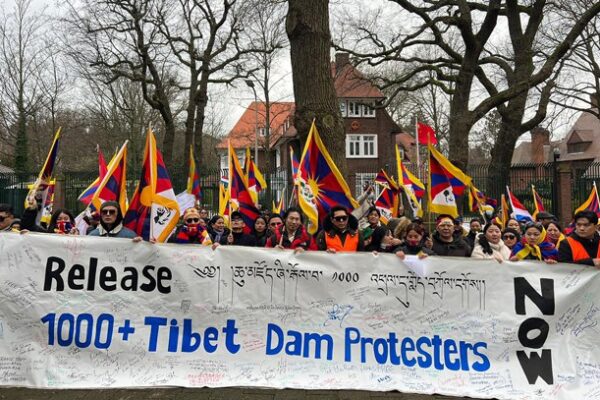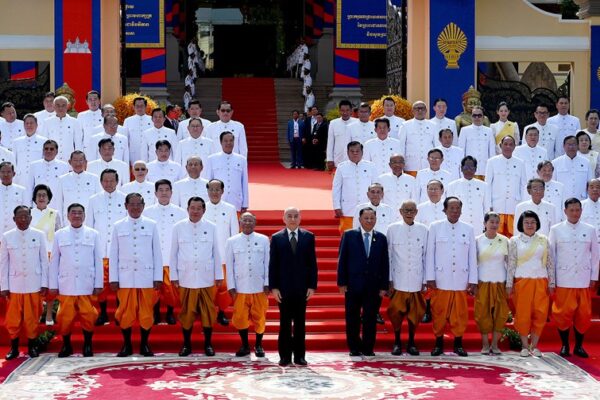Suspect in Lao bear cub trafficking case is on the run
A Chinese man found with 16 black bear cubs during a raid of a microfinance institute by Lao authorities last week is on the run, while the cubs are now being cared for by a wildlife conservation group in Luang Prabang province, a district official said Friday. The incident is the latest case of the illegal transportation of wildlife in Laos — a hub for wildlife trafficking for the exotic pet trade and medicinal purposes. Such activities are banned by the Convention on International Trade in Endangered Species of Wild Fauna and Flora, or CITES, which protects endangered plants and animals. On March 17, police from the environment division of Vientiane’s Department of Public Security and from Sikhottabong district’s public security office raided the Chinese-owned Ya Thai Microfinance Institute in the district’s Nongsanokham village to rescue the animals. Police seized the bear cubs after the Chinese man’s Lao wife would not tell them where they came from. They said they arrested her and are searching for the man, who owns the institute, and others who may be involved. Asiatic black bears, also known as moon bears because of the white or cream-colored crescent pattern on their chests, are listed in CITES’ most crucial category of endangered due to overhunting and to loss of habitat as forests are felled. As a CITES member, Laos must abide by the treaty’s prohibition on the international trade of live Asiatic bears or bear parts. Demand for bear bile Poachers can demand exorbitant sums for the bears’ gallbladders and bile, which are used in traditional medicines believed to cure a variety of ailments. They extract the bile, which helps protect the bears’ livers and prevents gallstones and illness during long hibernations, during which the animals are subdued and jabbed in the abdomen with needles in an attempt to pierce their gallbladders. The official from the Sikhottabong district office, who declined to be named because he is not authorized to speak to the media, told Radio Free Asia that the Chinese owner of the institute fled after police raided the office, and authorities are now searching for him. The Chinese man has a history of trafficking wildlife and other illegal activities, he said. Lao authorities involved in the raid would not comment on the incident to RFA. No one at the Ya Thai Microfinance Institute answered the phone when RFA called. On March 20, police handed the cubs over to the Australian wildlife organization Free the Bears, to keep them in its wildlife sanctuary in Luang Prabang, according to a video on the Facebook page of Vientiane’s Department of Public Security. In the video, the cubs, some of which are inside pet carriers, can be heard crying out. Lt. Col. Chansamouth Chanthalangsone, deputy head of the environment division at the department, said in the video that the bears were brought to the capital city without proper documentation, constituting the illegal transportation of wildlife. He did not mention how authorities knew to raid the office, though the institute is located in a building where people live close to each other, so they might have heard the bears screaming. The Free the Bears office in Luang Prabang declined to give RFA any information about the incident, citing the investigation. In mid-February, Free the Bears took possession of two male moon bear cubs that had been held in a cage for more than two years near the Laos-Thailand border. The bear cubs had been raised by a villager in remote Xayaburi province since their birth. Translated by Phouvong for RFA Lao. Edited by Roseanne Gerin and Malcolm Foster.







